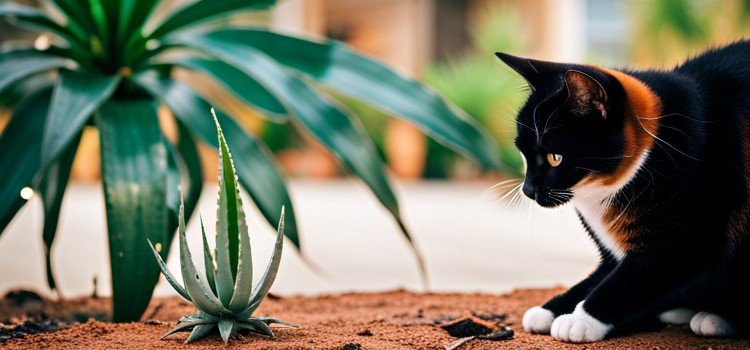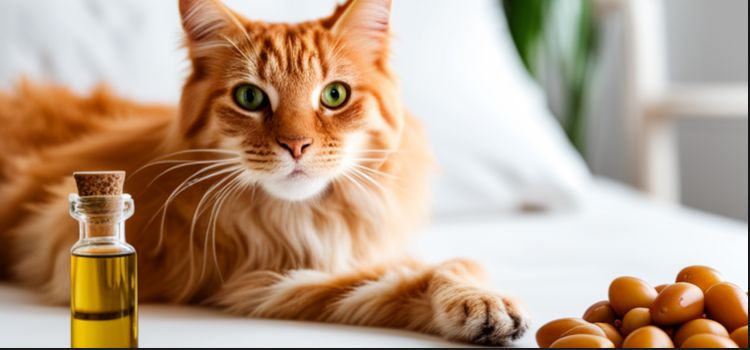As an Amazon Associate committed to the mission of improving the lives of our readers, Live-Clear.com receives a small commission from eligible purchases made through our affiliate links. This revenue enables us to keep producing insightful articles and other material.
As a responsible pet owner, you must be cautious about what your furry friend consumes. One common question that often arises is whether hornworms, those vibrant and intriguing caterpillars, can be harmful to dogs. In this comprehensive guide, we will delve into the world of hornworms, their potential dangers to dogs, and what you should do if your dog encounters these creatures. From identifying hornworms to understanding the risks they pose and providing safety tips, we’ll cover it all.
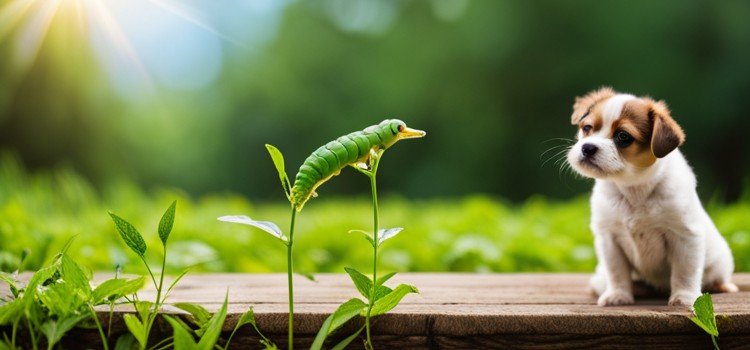
What Are Hornworms?
Hornworms, scientifically known as Manduca quinquemaculata, are large, green caterpillars commonly found in North America. They are also known as tomato hornworms due to their frequent presence on tomato plants. These caterpillars are known for their distinctive appearance, featuring a prominent horn-like structure on their posterior, which gives them their name.
Hornworms primarily feed on the leaves of plants and can grow up to 4-5 inches in length. They are a favorite subject of curiosity among gardeners and nature enthusiasts. However, their potential impact on dogs raises concerns among pet owners.
Identifying Hornworms
Before we discuss the dangers hornworms may pose to dogs, it’s essential to understand how to identify these creatures. Here are some key characteristics that can help you recognize hornworms:
- Size: Hornworms are relatively large caterpillars, typically measuring 4-5 inches in length.
- Color: They are bright green with diagonal white stripes along their sides.
- Horn: As their name suggests, hornworms have a horn-like protrusion at their rear end, distinguishing them from other caterpillars.
This horn is typically black and can be up to an inch long. Additionally, hornworms have a smooth and cylindrical body shape, making them easy to distinguish from other caterpillar species.
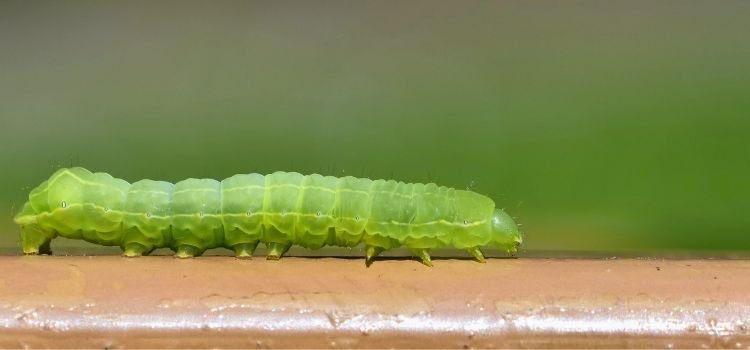
Hornworms: Toxic or Safe for Dogs?
Now, let’s address the big question: are hornworms toxic to dogs? While hornworms may be fascinating to observe in your garden, the good news is that they are not inherently harmful to dogs. These caterpillars do not possess any venom or dangerous chemicals that could pose an immediate threat to your furry companion.
However, it’s important to remember that while hornworms are not toxic, there are potential risks associated with allowing your dog to ingest them. These risks relate more to the possible side effects of consuming non-standard food rather than the hornworm’s toxicity.
Potential Dangers of Hornworms to Dogs
While hornworms are not toxic, there are some potential dangers that dog owners should be aware of:
Digestive Issues:
Hornworms are rich in protein and can be challenging for dogs to digest, especially if they eat a large quantity. Consumption of hornworms in excessive amounts may lead to gastrointestinal distress, including vomiting and diarrhea. If your dog has a sensitive stomach, it’s essential to monitor them closely. Additionally, some dogs may have allergies or sensitivities to hornworms, which can cause an allergic reaction.
It is necessary to observe your dog for any signs of itching, swelling, or difficulty breathing after consuming hornworms. If any of these symptoms occur, it is recommended to consult with a veterinarian for further guidance.
Pesticides and Contaminants:
If you’ve been using pesticides or other chemicals in your garden, there’s a risk that these substances may be present in the hornworms’ bodies. Ingesting hornworms with chemical residues can be harmful to your dog. It’s crucial to avoid offering any caterpillars to your dog if you’ve recently treated your garden with pesticides.
Even if you haven’t used pesticides, it’s still important to thoroughly wash the hornworms before feeding them to your dog to minimize any potential contamination. Additionally, always ensure that the hornworms come from a trusted source to reduce the risk of exposure to harmful chemicals or contaminants.
Allergic Reactions:
In rare cases, dogs can have allergic reactions to specific insects or their secretions. While hornworms are generally not known to cause allergies in dogs, it’s essential to be vigilant if your dog has never encountered them. Suppose you notice unusual symptoms, such as excessive itching, swelling, or difficulty breathing, after feeding your dog hornworms. In that case, it’s essential to consult with a veterinarian to rule out any potential allergic reactions. It’s always better to err on the side of caution when introducing new foods to your pet’s diet.
Choking Hazard:
The size and shape of hornworms may pose a choking hazard, especially if not chewed thoroughly. Dogs that tend to gulp down their food may be at risk of choking on hornworms. To minimize the risk of choking, it is recommended to either cut the hornworms into smaller pieces or mash them before feeding them to your dog. Additionally, it’s essential to supervise your dog while they are eating to ensure they are chewing their food correctly.
What to Do if Your Dog Eats a Hornworm
If you catch your dog munching on a hornworm in your garden, it’s essential to take appropriate steps to ensure their safety:
- Remove the Hornworm: If your dog is still eating the hornworm, gently remove it from their mouth to prevent further ingestion.
- Monitor Your Dog: Keep a watchful eye on your dog over the following few hours to ensure he doesn’t get into trouble. Look for signs of digestive distress, such as vomiting, diarrhea, or discomfort.
- Contact Your Veterinarian: Contact your local veterinarian for advice if you discover any peculiar symptoms or have any reason to believe that the hornworms were exposed to chemicals. They can offer specific advice based on your dog’s health and the circumstances.
- Prevent Future Incidents: To avoid such situations, consider taking steps to keep hornworms away from your garden or restrict your dog’s access to the garden area.
Some steps to keep hornworms away from your garden include regularly inspecting your plants for any signs of infestation and removing any hornworms you find manually. Additionally, you can use natural deterrents such as planting companion plants that repel hornworms or using organic insecticides.
Safety Tips for Dog Owners
To keep your dog safe around hornworms and other potential garden hazards, follow these safety tips:
- Regularly inspect your garden for hornworms and insects before allowing your dog to roam freely.
- Keep your dog on a leash or in a fenced area to prevent unsupervised access to your garden.
- If you use pesticides in your garden, ensure they are pet-safe and apply them according to the manufacturer’s instructions.
- Train your dog to “leave it” or “drop it” to prevent them from picking up potentially harmful items.
Additionally, consider planting companion plants that naturally repel hornworms and other pests, such as marigolds or garlic. These can help create a more dog-friendly and pest-resistant environment in your garden. Finally, provide your dog with plenty of mental and physical stimulation to discourage them from investigating potential hazards in the park.
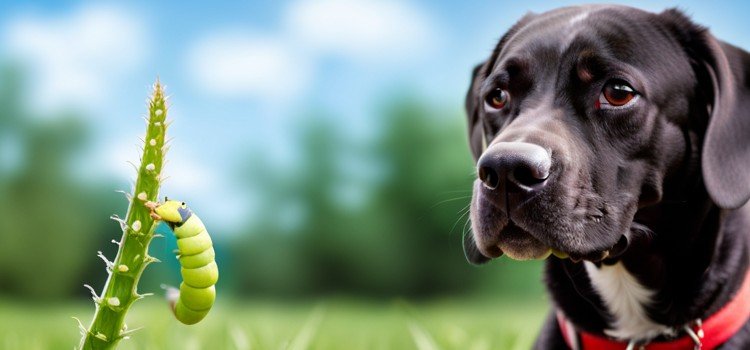
Conclusion
In conclusion, while hornworms are not inherently poisonous to dogs, there are potential risks associated with allowing your dog to consume them. These risks primarily relate to digestive issues, pesticides, and choking hazards. As a responsible pet owner, it’s crucial to monitor your dog’s behavior and health if they come into contact with hornworms.
It is essential to consult with a veterinarian if you suspect your dog has consumed hornworms or is exhibiting any unusual symptoms. Additionally, implementing preventative measures such as keeping your garden free of potential hazards and providing appropriate mental and physical stimulation for your dog can help minimize the risks associated with hornworm consumption.
Frequently Asked Questions (FAQs)
No, hornworms cannot bite or sting dogs. They do not possess any defensive systems that may used against dogs. Hornworms are generally harmless to dogs if ingested. However, it is essential to monitor your dog for any signs of discomfort or digestive issues after consuming hornworms. If you notice any unusual symptoms, it is recommended to consult with a veterinarian for further guidance.
In general, all hornworm species are not toxic to dogs. The potential dangers stem from factors like the dog’s sensitivity and pesticides on the caterpillar. It is always best to err on caution and prevent your dog from consuming hornworms exposed to pesticides. Additionally, if you are unsure about the specific species of hornworm your dog has ingested, it is advisable to seek veterinary advice to ensure your dog’s safety.
You can deter hornworms by introducing natural predators like parasitic wasps, hand-picking caterpillars, and practicing crop rotation in your garden. Another effective method is companion planting, where you grow plants that repel hornworms, such as marigolds or garlic, near your vulnerable crops. Additionally, regularly inspecting your plants for signs of hornworms and removing them promptly can help prevent infestations without pesticides.
Signs of digestive distress in dogs can include vomiting, diarrhea, abdominal discomfort, excessive drooling, or lethargy. If your dog exhibits any of these symptoms after consuming hornworms, it is essential to consult a veterinarian for proper diagnosis and treatment. It is also recommended to avoid letting your dog consume hornworms in the future to prevent further digestive issues.
While sensitivity to hornworms can vary among individual dogs, there is no specific dog breed that is known to be more susceptible to digestive issues from consuming hornworms. However, dogs with pre-existing gastrointestinal sensitivities may be more at risk. These sensitivities could include food allergies, irritable bowel syndrome, or inflammatory bowel disease. It is essential to monitor your dog’s behavior and consult with a veterinarian if you notice any signs of digestive distress after consuming hornworms or any other food.
Taking steps to prevent such encounters and ensuring a safe environment for your dog in your garden is the best approach. If you ever have concerns about your dog’s health after ingesting hornworms or other garden pests, don’t hesitate to seek guidance from your veterinarian. The health and happiness of your dog should never be an afterthought.
It is important to note that not all dogs will experience digestive issues from consuming hornworms, as each dog’s tolerance and sensitivity may vary. Additionally, regularly monitoring your dog’s behavior and seeking immediate veterinary attention if any abnormal symptoms occur can help prevent potential complications.
Amazon and the Amazon logo are trademarks of Amazon.com, Inc, or its affiliates.
